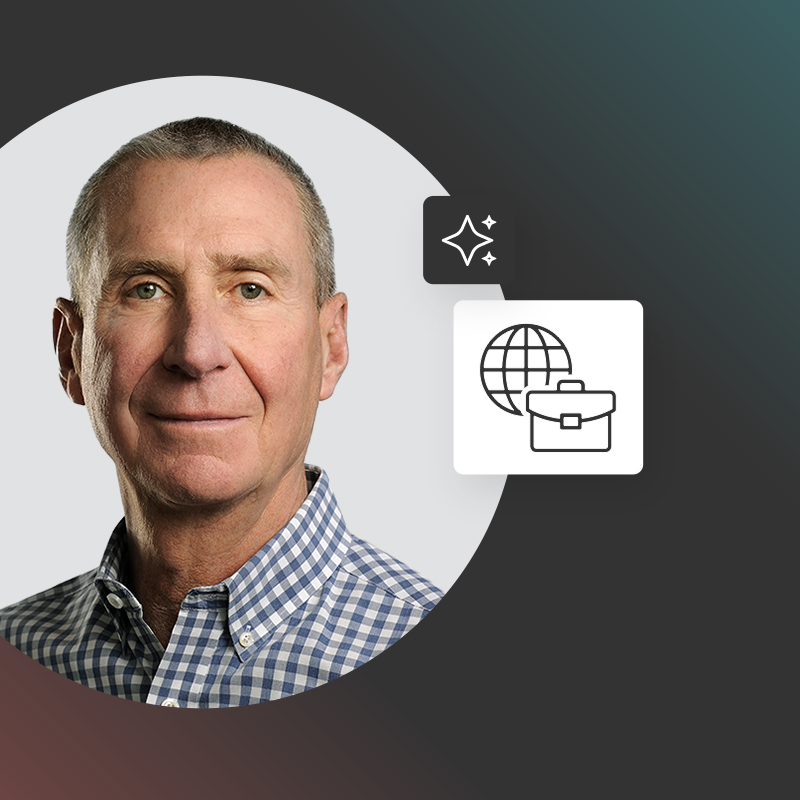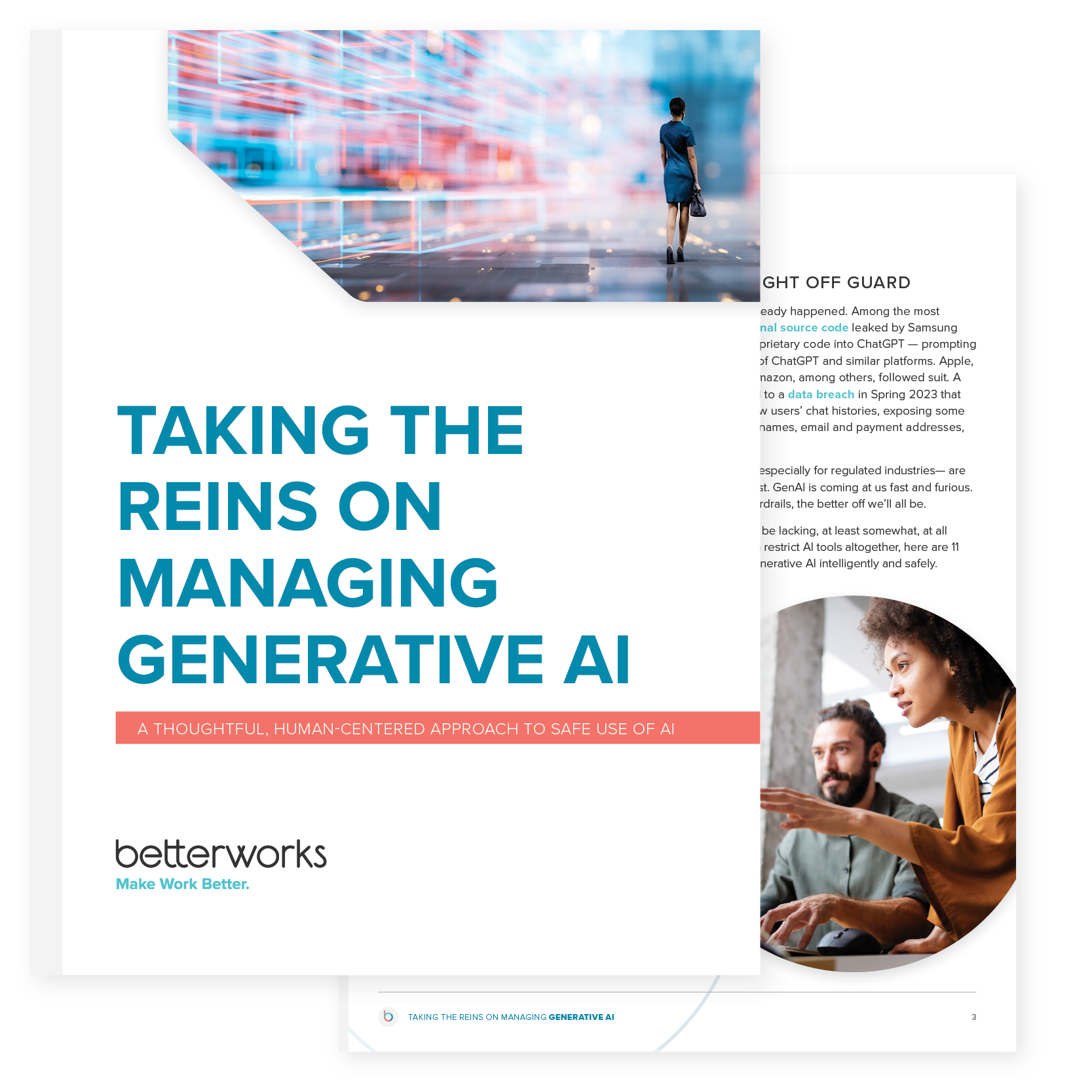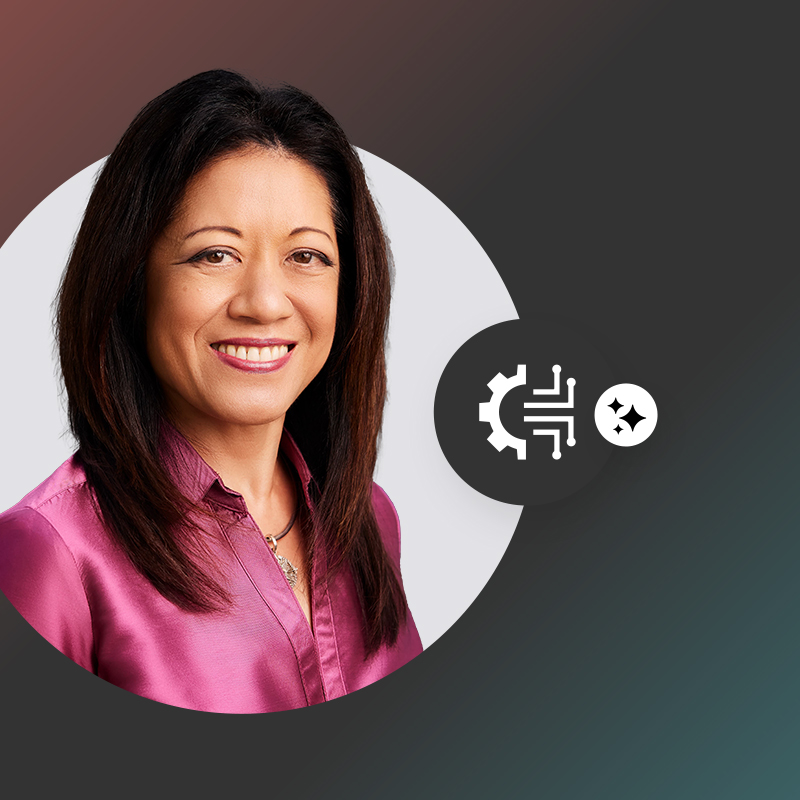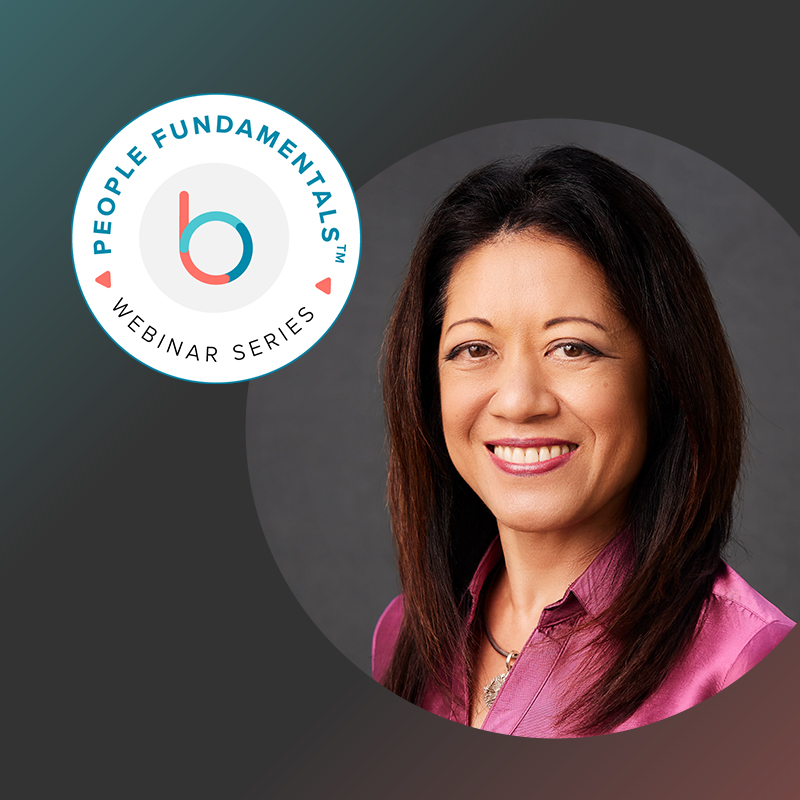Generative AI is one of the fastest-adopted technologies ever invented, and it’s rapidly changing everything we know about work. This disruption requires HR leaders to make big decisions when using AI to drive key HR programs, including performance management.
Generative AI’s potential elicits equal measures of excitement and anxiety in the workplace. That’s why we invited David Landman, former global head of talent at Goldman Sachs, to join our own Doug Dennerline, CEO at Betterworks, to address common myths about AI in performance management as part of our People Fundamentals webinar series.
Learn what Doug and David have to say about using artificial intelligence safely while driving strategic outcomes for HR and the overall business. You can also listen in to excerpts from the webinar on our People Fundamentals podcast.
Subscribe wherever you listen to podcasts: Apple Podcasts | Spotify | YouTube
Get comfortable using AI yourself first
While Doug doesn’t believe AI will replace HR, that doesn’t mean HR professionals should stand still. “The greatest worry shouldn’t be about AI replacing people, but people without AI skills being replaced by people with them,” he said. Solving this problem starts with you.
Start by improving your AI acumen, urged David and Doug. Practice using AI, and figure out its capabilities and limitations. Have conversations with ChatGPT and other services to test out a variety of prompts and questions. “People who have good delegation skills will have an easier time learning how to use AI,” David said, since generating functional output using AI tools is very similar to explaining what you need from a colleague to successfully hand off a task.
By actively using generative AI tools, you’ll learn how to unlock the most value, write effective prompts, and apply human judgment to AI’s findings. Experimentation also helps you overcome your AI fears and reservations — and help others do the same. “I think people who get on board early and start to use it will just become more fluent and comfortable,” David said.
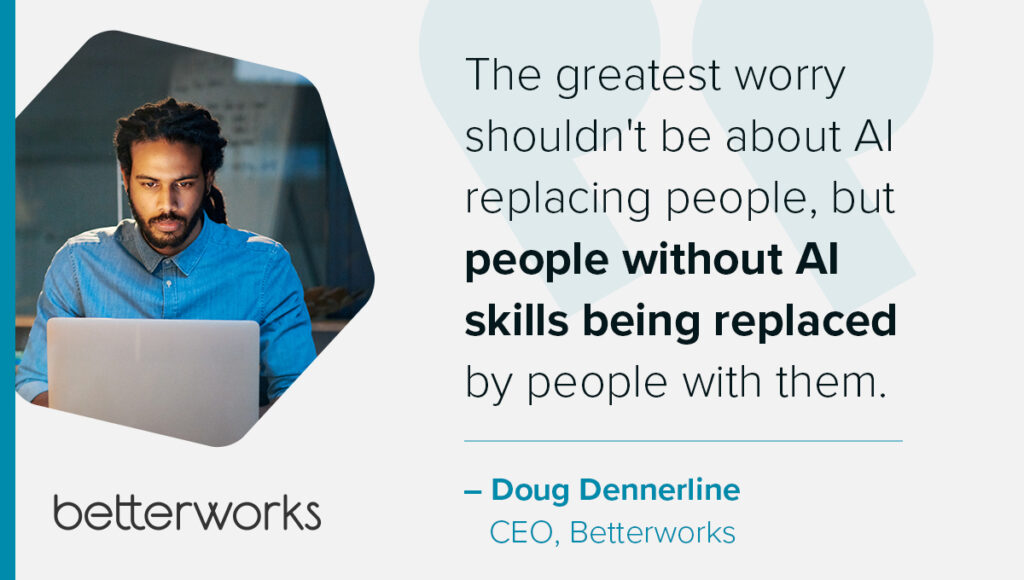
Take the lead on strategic AI at work
More than half (54%) of employees are already using AI, Betterworks research found — and many are doing so without company approval. HR needs to get ahead of this trend for numerous reasons, including to avoid inadvertent exposure of company information to public-facing AI tools, Doug said. HR can be a leader — shaping how the organization uses AI to support employees, managers, and business goals.
AI in HR, meanwhile, has immense potential to drive strategic value — and 64% of employees already report using it for strategic work, according to the Betterworks report.
“Work with your leadership to come up with your own language around how you’re going to use AI, how you talk about it externally, how you’re going to protect people that use it,” Doug said. “And have models for what your expectations are for when people interact with it.”
HR has a strategic responsibility to drive change and innovation while protecting the employee experience — and AI adoption aligns with this mission. “As HR professionals, we have to help drive the change to enable people to embrace AI in the workplace,” David said.
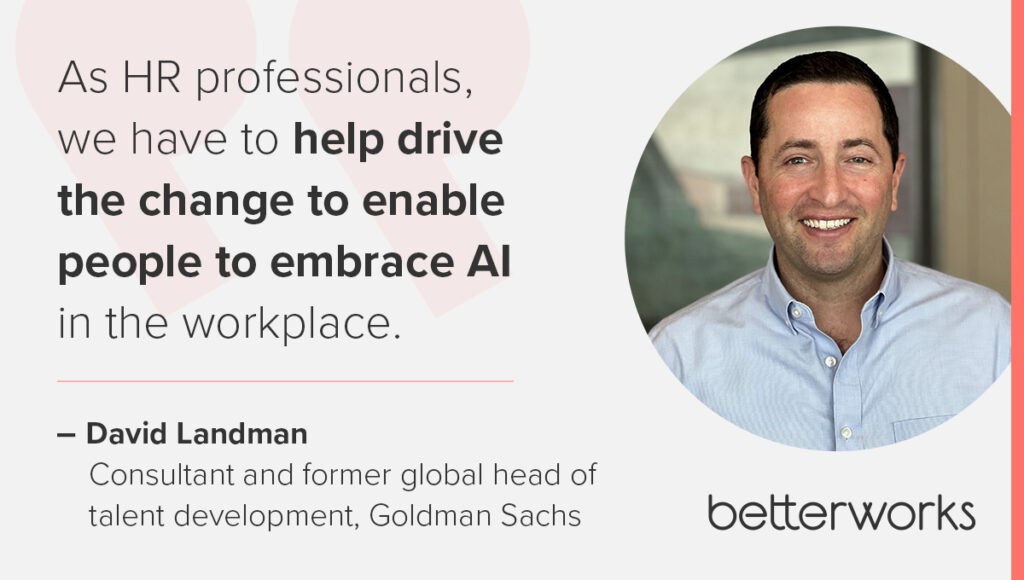
Teach the workforce to use AI safely
To apply AI tools safely and responsibly, you need to focus on enhancing work, not replacing humans. “The truth is, this is just a tool that’s going to augment our jobs, our judgment, change the way that we work — I think mostly for the better — but it is just a tool, and it’s not always going to be perfect nor right,” David said. “We need to do our diligence.”
Train managers and employees on how to craft effective prompts so they can get the most value from AI in an efficient way. Audit AI recommendations and outputs to ensure they align with your company’s values and priorities.
Consider custom models, like the model used by Betterworks’ intelligent performance management platform, that train exclusively on your company’s internal data. This can avoid built-in biases from public models, produce tailored results, and protect your intellectual property. “Custom-built models that operate within the four walls of your organization are interesting for a lot of reasons, including the ability to help create more authenticity,” David said.
While there are always risks from introducing new technology, “the positives of AI far, far outweigh the potential negatives,” Doug said. HR can mitigate these risks by auditing AI use and making sure AI is producing strategic value for the business. “It is going to profoundly change the way that people work and the way that they innovate,” Doug said.
To learn more about applying AI in performance management, watch the on-demand webinar.
Debunking the 7 Myths About AI in Performance Management
